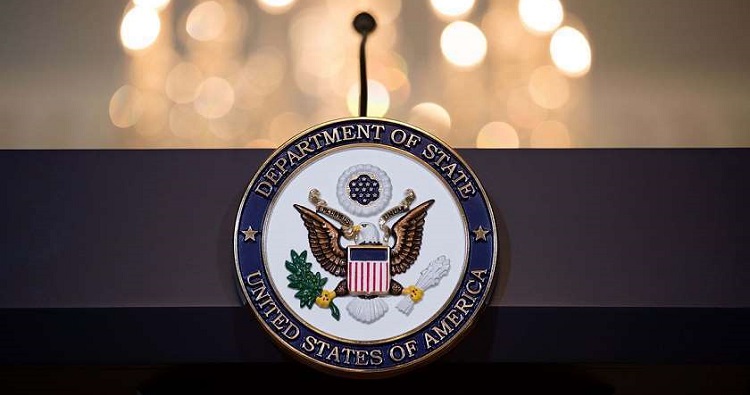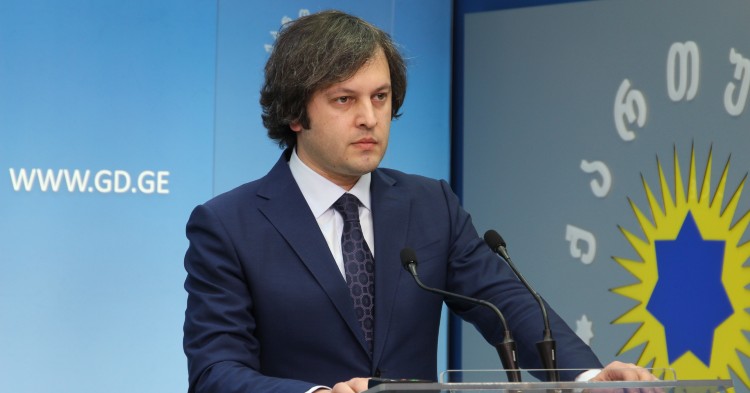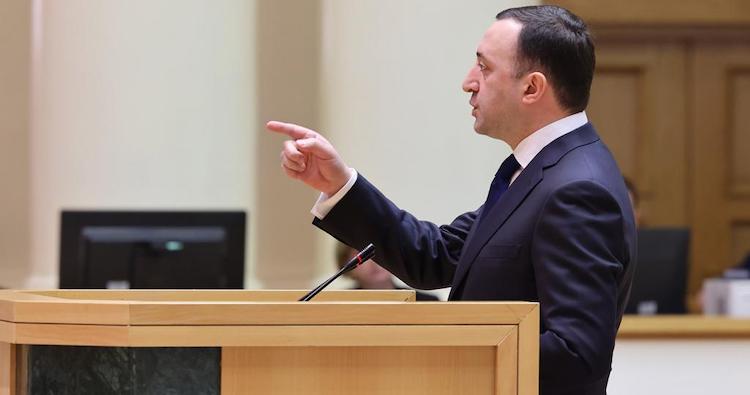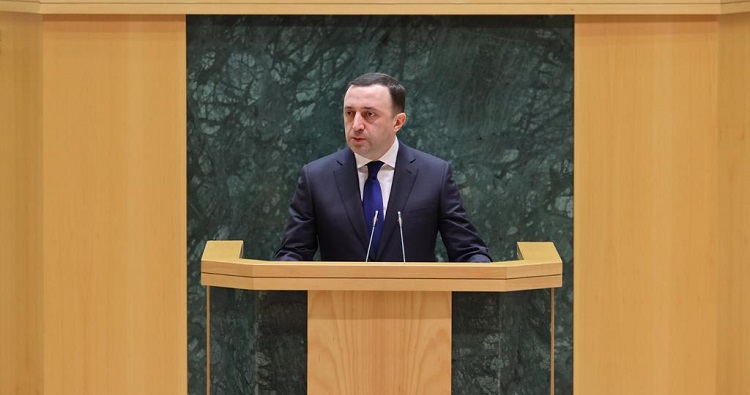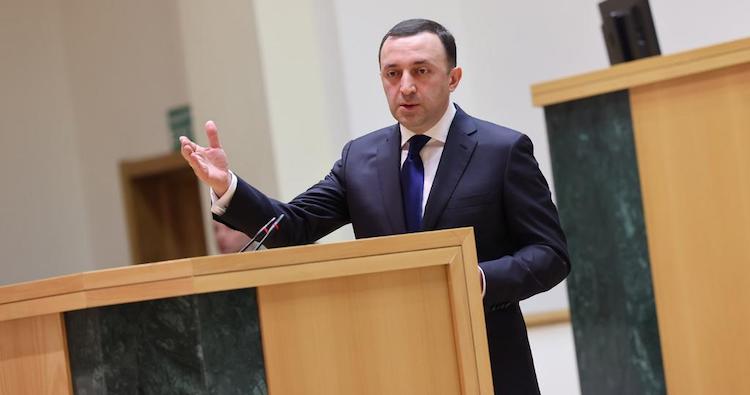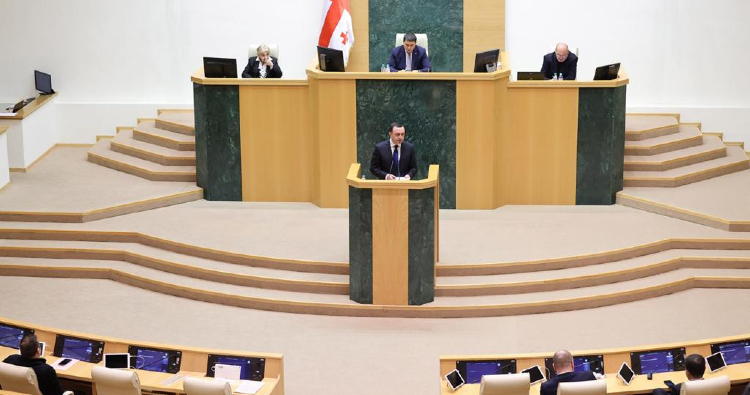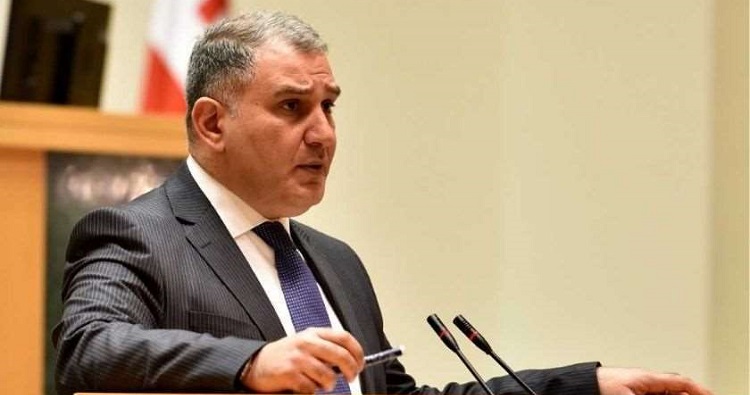Georgian PM thanks police officers, Gov’t for “firmness”, “intelligence” during transparency bill protests
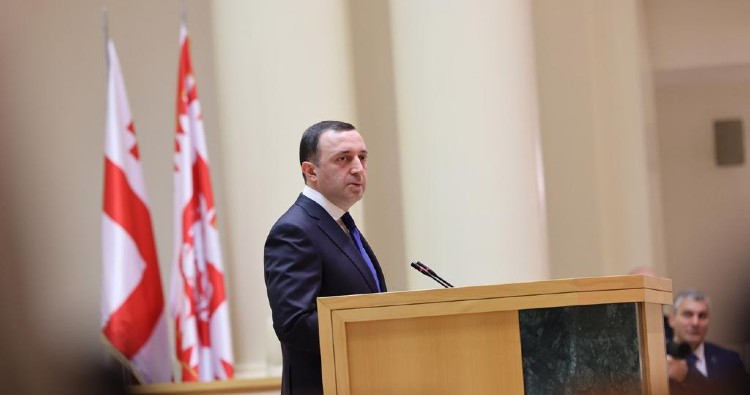
Garibashvili told the Parliament in a plenary session the protesters’ attempts to storm the legislative body during the gathering had been “absolutely unacceptable”. Photo via Government Administration
Georgian Prime Minister Irakli Garibashvili on Friday thanked the country’s law enforcement and Government for having shown “firmness, strength and intelligence” during the public protests in Tbilisi against the controversial domestic bill on transparency of foreign influence earlier this month.
Garibashvili told the Parliament in a plenary session the protesters’ attempts to storm the legislative body during the gathering had been “absolutely unacceptable”.
Giorgi Vashadze, the leader of the Strategy Agmashenebeli opposition party, called on the participants of the rally to besiege the Parliament building, with clashes ensuing between them and law enforcement outside the lawmaking body.
Commenting on the bill - which was formally retracted by the ruling Georgian Dream party after it initially passed the first hearing at the Parliament - the PM noted its shelving in Georgia took place before the European Parliament and the Canadian Government began “active” discussions on potentially introducing similar laws in their legislations.
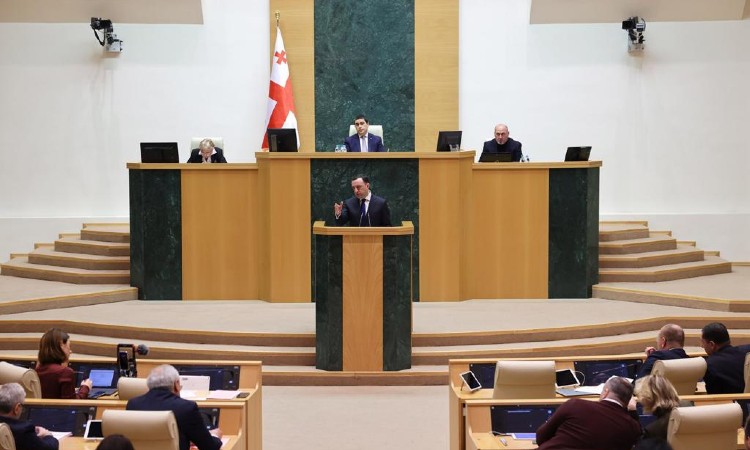 Photo via Government Administration
Photo via Government Administration
Despite the Georgian Parliament’s reveal of its intention of forwarding the bill to the Venice Commission of the Council of Europe for opinion, and pledges of taking the body’s feedback into account for the legislative piece, the PM said the domestic “destructive and extremist forces” had attempted to destabilise the country and used the draft law for “their own goals”.
The bill, proposed by the People's Power movement composed of former members of the ruling party, called for registration of non-commercial legal entities and media outlets in the country as “agents of foreign influence” if they derived more than 20 percent of their funding from abroad.
It was met with a backlash by domestic opposition, civil sector and diplomatic representations in the country, as well as public rallies outside the Parliament building.
Georgian-based non-governmental organisations, the United States Department of State, European Union officials and the United Nations Office in Georgia all spoke out in criticism against the draft law before it was recalled.
 Tweet
Tweet  Share
Share

